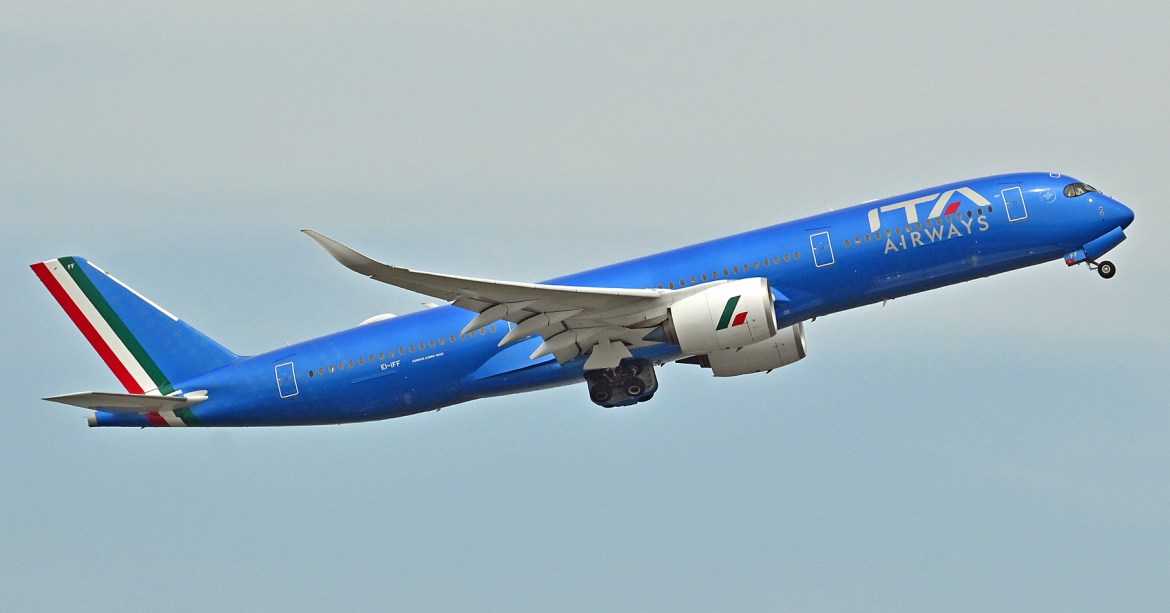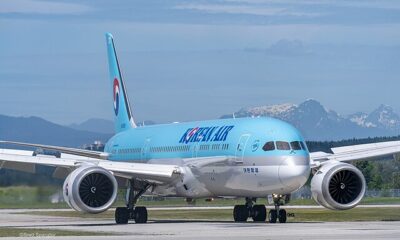Aviation
IATA Wings of Change Europe Conference Concludes with Call for EU to Prioritise Competitiveness and Sustainability

The International Air Transport Association’s (IATA) flagship industry event, held in Rome between 20 and 21 November, concluded with calls for industry stakeholders and governments to work together and take practical actions to prioritise competitiveness and sustainability. The event, hosted by ITA Airways, was held following the release of the Draghi Report, a 2024 report addressing European competitiveness and the future of the European Union.

Highlights of the Conference
Highlights of the two-day event included:
- A keynote speech by Filip Cornelis, Director for Aviation, DG MOVE, European Commission. In the speech, he confirmed that the new Commission will follow the same policy direction, but will have a greater focus on improving competitiveness, guided by the recommendations of the Draghi report. Cornelis clarified that there would be no change in policy on aviation sustainability, arguing that aviation needed to be a “bright green, not hopelessly brown” sector.
- A CEO panel discussion with Andrea Bernassi (ITA Airways), Luis Gallego (IAG), Christian Scherer (Airbus) and IATA Director General Willie Walsh which continued to emphasise European competitiveness. They described the reform of EU 261 as a clear ‘win’ the new Commission should focus on. They also stressed the importance of ensuring the future of the Single European Sky initiative while describing taxation as a blunt instrument unsuitable for promoting the sustainability agenda and in opposition to the aims of the Draghi report.
EU Rule 261 protects passengers’ rights in the event of flight disruptions by offering assistance and compensation. The Single European Sky is a European Commission initiative that seeks to reduce the fragmentation of air traffic management in Europe.
Willie Walsh, IATA’s Director General said:
Europe must understand that its overregulation is reducing the global competitiveness of European industries. The Draghi recommendations shouldn’t just be a report – they must be implemented. Key to that is a better approach to sustainability. Regulators need to understand that taxing people off planes will not reduce CO2. The planes will still fly, but we will be returning to the load factors of 20 or 30 years ago. That means reducing the access to air travel for millions of people, causing huge socio-economic damage, for zero environmental benefit. What’s needed is practical action, such as reviving the single European Sky which could cut emissions by 10% overnight, and better incentives for increasing production of SAF.

Challenges Facing European Aviation
Manufacturing issues affecting the Airbus Neo Fleet have slowed the growth of airlines across Europe this year. In other news affecting the industry, France has become the latest European country to propose an increase in airline tax. The plan would see the ‘solidarity tax’ rise across the board depending on the flight’s duration. For example, it would increase from €2.63 to €9.50 for all tickets on European flights to or from France. The proposal has prompted Ryanair to threaten to end services to ten regional airports in France from January 2025.
What policy changes should be made to support the European aviation industry? Share your answers in the comments below.




























